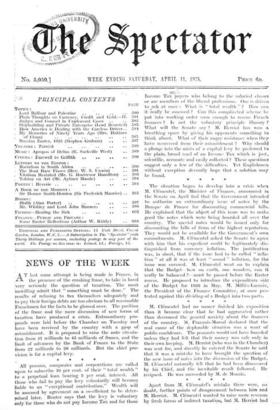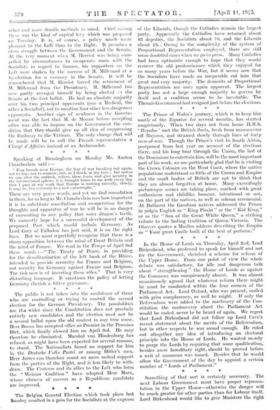Apart from M. Clementel's mistake there were, no . doubt, further
points of disagreement between him and M. Herriot. M. Clementel wanted to raise more revenue by fresh .forrhS of indirect taxation; but M. Herriot had- other and more drastic methods in mind. Chief among these was the kind of capital levy which was proposed on Tuesday. It is, of course, a policy much more pleasant to the Left than to the Right. It promises a stern struggle between the Government and the Senate. At the very moment when M. Herriot was being com- pelled by circumstances to co-operate more with the Socialists in regard to finance, his supporters on the Left were shaken by the success of M. Millerand at a by-election for a vacancy in the Senate. It will be remembered that M. Herriot Forced the retirement of M. Millerand from the Presidency. M. Millerand has new partly avenged himself by being elected 1-1 the Senate at the first ballot. He had an absolute majority over his two principal opponents (one a Itadical, the other a Socialist), not to mention four other less dangerous opponents. Another sign of weakness in the Govern- ment was the fact that M. de Monzie before accepting office was able to impose on the Government the con- dition that they should give up all idea of suppressing the Embassy to the Vatican. The only change that will be made will be to call the French representative a Charge d'Affaires instead of an Ambassador.
* * * *











































